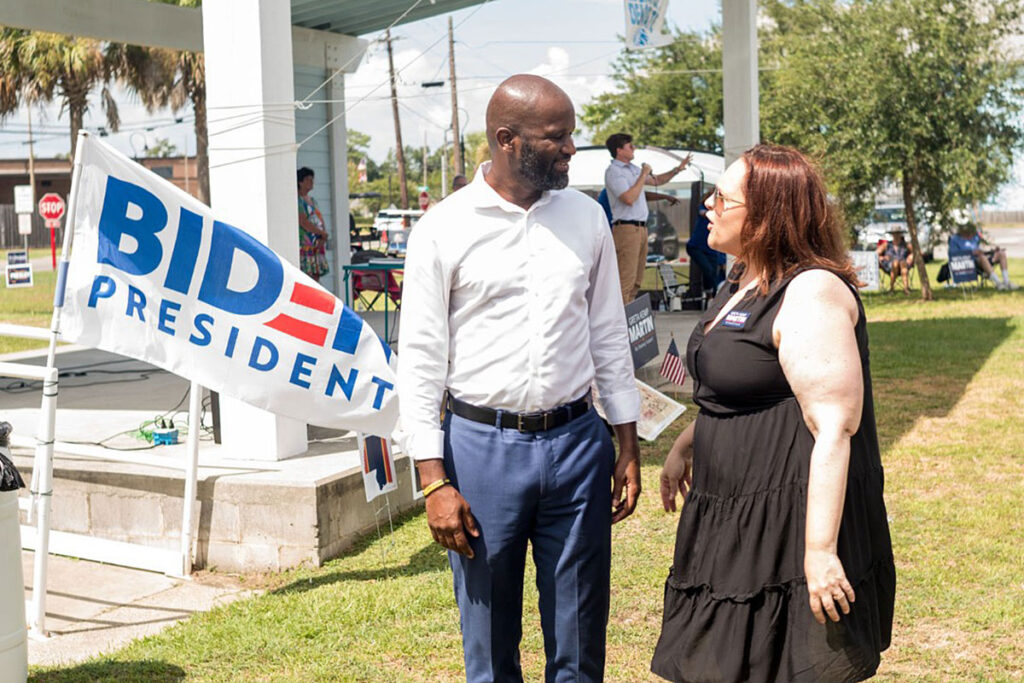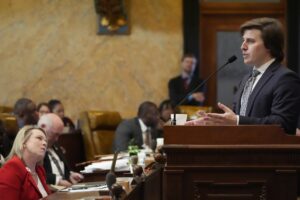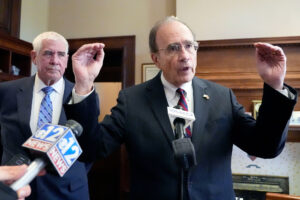Mississippi should restore the voting rights of formerly incarcerated people, Democratic candidate for Mississippi attorney general Greta Kemp Martin said in a joint press conference with Democratic candidate for secretary of state Ty Pinkins in Greenville, Miss., on Sept. 14.
The 5th U.S. Circuit Court of Appeals ruled on Aug. 4 that Mississippi’s lifetime voting ban for people charged with certain crimes is “unconstitutional” because it does not follow the Eighth Amendment’s prohibition against “cruel and unusual punishment.” The State prohibits people convicted of any of 21 listed crimes from voting, including murder, rape, arson and robbery.
“This ruling is aimed to remove punitive obstacles for those who are trying to re-enter their communities from correctional facilities,” Martin said on Sept. 14. “This would rectify historical injustice initially designed to suppress Black voters and still disproportionately affecting Black Mississippians today.”
Mississippi implemented the voting ban for currently and formerly incarcerated people when it adopted the new state constitution in 1890 as a way to “exclude Black citizens from participation in the electoral process,” the ruling noted.
“Although the delegates were explicit about their goal of white political control, they were careful to avoid provisions overtly violating the Fifteenth Amendment’s ban on restricting voting based on race,” it says.
Fitch Files Appeal
Incumbent Republican Attorney General Lynn Fitch filed an appeal against the court’s ruling on Aug. 18, writing that Mississippians “have overwhelmingly disagreed” with allowing formerly incarcerated people to vote.
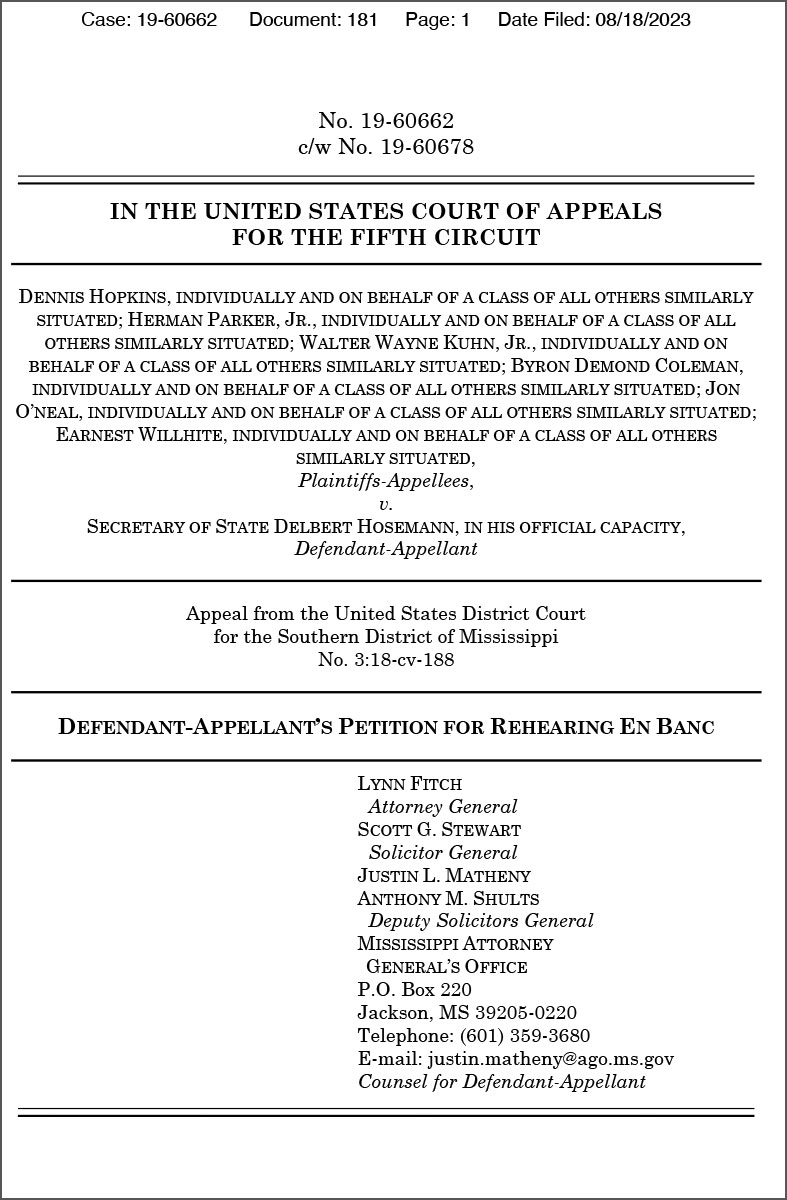
“Each listed crime is serious, probative of dishonesty or poor civic virtue, a common-law crime whose gravity has long been recognized, a crime that has commonly triggered disenfranchisement—or a combination of these features,” the brief says. “Indefinitely denying the vote on those grounds is reasonable and enjoys a long tradition.”
A spokesperson for Fitch did not offer any comments on the attorney general’s decision but sent a quote from the brief instead.
“The panel decision conflicts with binding precedent. The panel ruled that it could invalidate a category of felon disenfranchisement, that Mississippi’s disenfranchisement law imposes ‘punishment’ under the U.S. Constitution, and that that law is cruel and unusual,” the brief says. “As Judge (Edith) Jones explained in dissent, all those conclusions are wrong.” Fitch said the en banc court heard a case challenging the same provision two years ago and upheld it, but that the latest ruling “invalidates the same provision and throws settled practice into chaos.”
Greta Kemp Martin said Fitch should not have appealed the court’s ruling.
“A good attorney knows when the court gets it right, so dismissing an appeal that would rip away voting rights from Mississippians who have long since served their sentences is a no-brainer,” she said.
Martin challenged Fitch to a debate in a Sept. 19 press release, saying the incumbent Republican has “lost the trust of everyday Mississippians.” Fitch has not agreed to a debate so far.
“It’s time for her to stand before the state and answer to voters,” Martin said.
The Mississippi Free Press asked a spokesperson from Fitch’s campaign if the attorney general would debate Martin, but the representative did not answer the question asked.
“Since taking office, General Fitch has kept a busy schedule speaking with community groups across Mississippi, both sharing what she is doing as their Attorney General and hearing from them about their thoughts and concerns,” Fitch’s office said. “And the remaining seven weeks are no different. General Fitch will continue to meet directly with Mississippians to work toward ways to advance Mississippi to its best future.” It is unclear whether Martin is included among those Mississippians the incumbent plans to meet with.
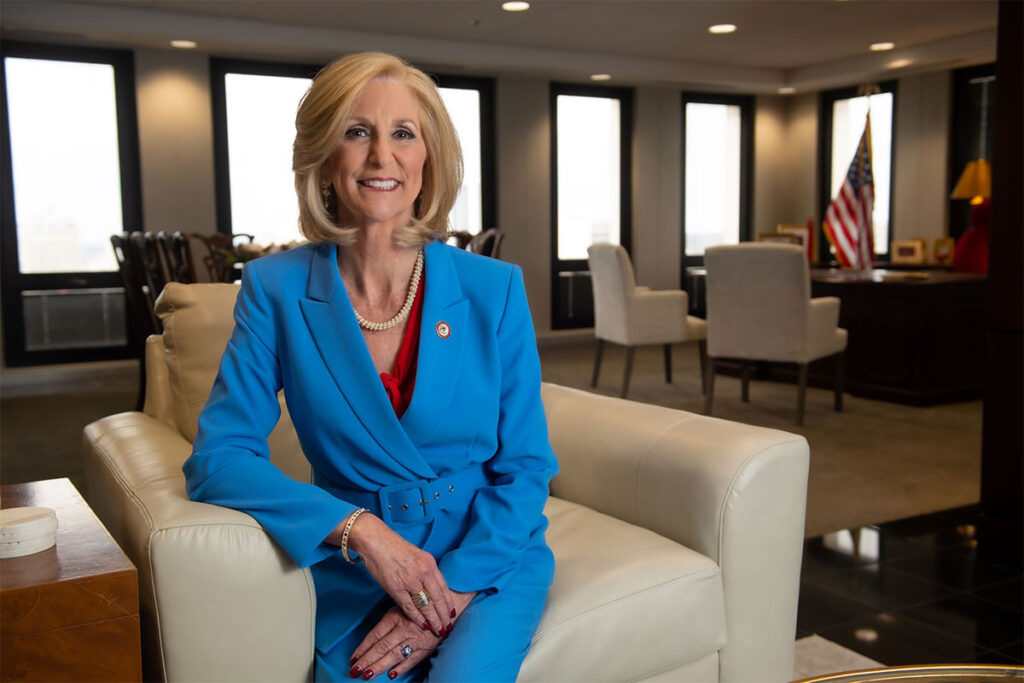
Evading debates is not new for Fitch. During her first campaign for attorney general in 2019, Fitch refused to join her Republican primary opponents Andy Taggart and Mark Baker for debates in the primary and also refused multiple debate invitations with her general election opponent Jennifer Riley Collins.
During her time as attorney general, Fitch has also mostly avoided speaking directly with nonpartisan media outlets in the state, preferring instead to sit with Republican-friendly interviewers.
‘The Toughest State to Cast a Vote’
A spokesperson for Secretary of State Michael Watson confirmed that his office has filed for a rehearing.
“It is important to note the court’s order is not final and does not mean those convicted of a disenfranchising crime can immediately register to vote,” his office said in a statement to the Mississippi Free Press on Sept. 19. “The Secretary of State’s Office filed a petition for rehearing en banc seeking a reversal of the court’s ruling on August 18, 2023.”
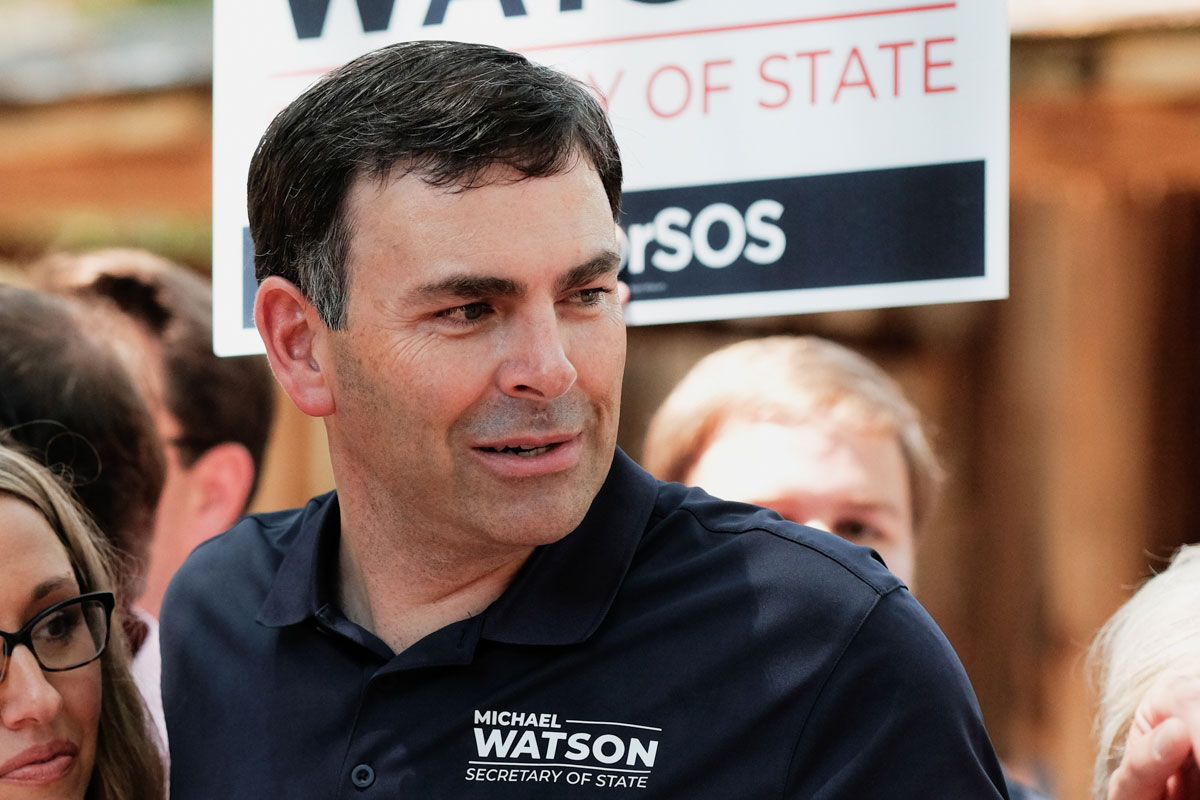
Mississippi’s Democratic party named Ty Pinkins as its secretary of state candidate Sept. 7 after the former candidate, Shuwaski Young, dropped out of the race in August due to health concerns.
The secretary of state oversees elections statewide. Pinkins said restrictive voting regulations negatively affect marginalized communities.
“Mississippi is tragically the toughest state to cast a vote in,” Watson’s opponent said. “… The journey to the ballot box should be our proudest march—a commitment to democracy—but today it’s a maze crafted deliberately by Michael Watson and his allies.”
Pinkins said it should be “easier” to vote in Mississippi and listed several changes to the voting process he would make if elected, including online voter registration, early voting and absentee ballot reform. Watson has voiced support for online voter registration before, but the Legislature has not taken steps to implement it.
“We need to look at systems that worked well in other states to produce very high voter turnout rates, such as same-day voter registration and the vote-at-home system, an innovation that ensures ballots are sent automatically to every registered voter,” Pinkins said.


